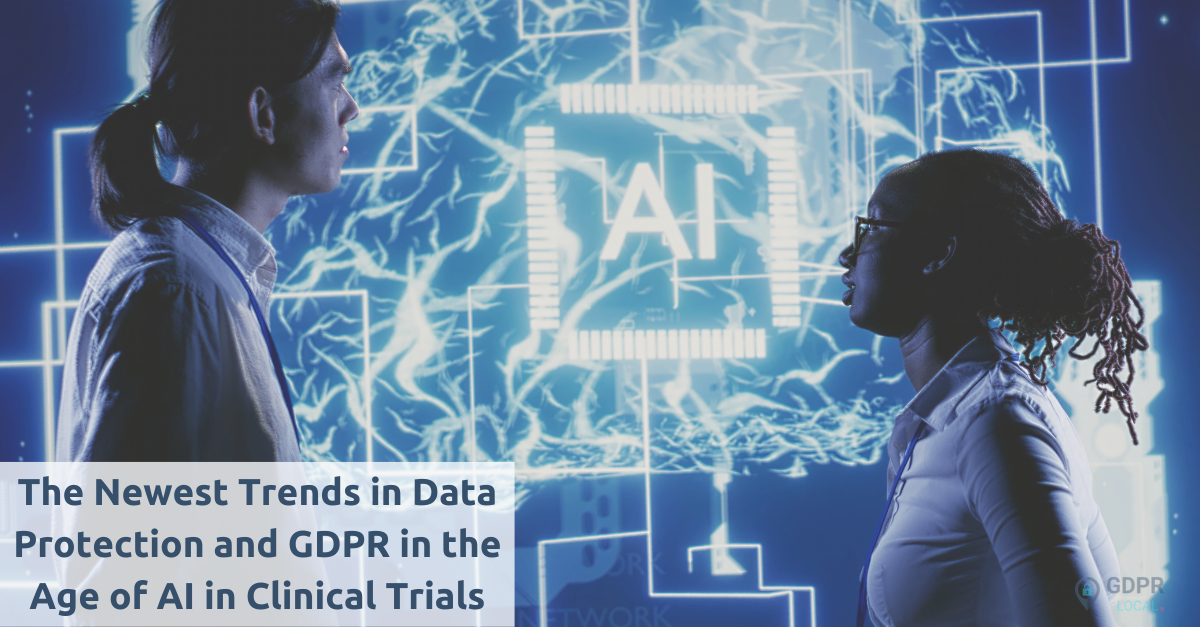
The Newest Trends in Data Protection and GDPR in the Age of AI in Clinical Trials
Note: The following article is a comprehensive guide discussing the latest trends and advancements in data protection and GDPR compliance in the context of AI-driven clinical trials. It aims to provide valuable insights and guidance for professionals in the pharmaceutical and healthcare industries.
In recent years, the field of clinical trials has witnessed significant advancements and innovations, with the integration of artificial intelligence (AI) being at the forefront of this transformation. AI has revolutionized various aspects of clinical trials, from patient recruitment to data analysis. However, with the increasing reliance on AI and the ever-growing concerns surrounding data privacy and security, it is crucial to stay informed about the newest trends in data protection and GDPR compliance in the age of AI in clinical trials.
The Role of Data Protection in Clinical Trials
Data protection plays a critical role in clinical trials as it ensures the confidentiality, integrity, and availability of sensitive patient data. The General Data Protection Regulation (GDPR), implemented in May 2018, has further reinforced the importance of protecting personal data in clinical research. GDPR establishes strict guidelines and requirements for the collection, processing, and storage of personal data, including health-related information.
GDPR Compliance and its Implications
Compliance is essential for all organizations involved in clinical trials, including pharmaceutical companies, contract research organizations (CROs), and healthcare providers. Non-compliance can result in severe penalties, including substantial fines and reputational damage. Therefore, it is crucial for organizations to understand the key principles and requirements of GDPR and implement appropriate measures to ensure compliance.
Ensuring Data Security and Privacy
To safeguard patient data and maintain compliance with GDPR, organizations must implement good data security measures. This includes encryption of sensitive data, secure storage and transmission protocols, and access controls to limit unauthorized access. Regular data backups and disaster recovery plans should also be in place to mitigate the risk of data loss or breaches.
The Rise of AI in Clinical Trials
AI has emerged as a game-changer in the field of clinical trials, offering immense potential to enhance efficiency, accuracy, and speed. From predictive analytics to machine learning algorithms, AI-driven technologies have revolutionized various aspects of clinical research. However, as AI becomes more prevalent in clinical trials, it is essential to address the unique challenges and considerations related to data protection and GDPR compliance.
Utilizing AI for Data Analytics
One of the primary applications of AI in clinical trials is data analytics. AI algorithms can process vast amounts of patient data, identify patterns, and generate valuable insights. This enables researchers to make data-driven decisions, optimize trial designs, and identify potential risks or adverse events. However, organizations must ensure that the AI models used for data analysis comply with GDPR regulations and protect patient privacy.
Enhancing Patient Recruitment and Retention
AI-powered tools can significantly improve patient recruitment and retention in clinical trials. By leveraging AI algorithms, organizations can identify eligible patients, streamline the recruitment process, and enhance patient engagement. AI-driven chatbots and virtual assistants can provide personalized support and guidance to patients, improving their overall experience and increasing trial participation rates.
Real-time Monitoring and Safety Assessment
AI technologies, such as wearable devices and remote monitoring systems, enable real-time data collection and continuous monitoring of patients’ health status. This allows researchers to detect potential safety concerns or adverse events promptly. However, organizations must ensure that the data collected through these technologies is protected, and patient privacy is maintained throughout the process.

The Newest Trends in Data Protection and GDPR Compliance
As the field of clinical trials continues to evolve, several trends have emerged in the realm of data protection and GDPR compliance. Organizations must adapt data management practices to comply with regulations and uphold high standards of data protection, reflecting current trends.
Artificial Intelligence (AI) for Data Privacy and Security
AI can be leveraged to enhance data privacy and security in clinical trials. AI algorithms can identify and mitigate potential data breaches or security vulnerabilities, ensuring that patient data remains secure throughout the trial process. AI-powered encryption techniques and anomaly detection systems can provide an additional layer of protection against unauthorized access or data breaches.
Blockchain Technology for Data Integrity and Transparency
Blockchain technology is gaining traction in the field of clinical trials, offering enhanced data integrity and transparency. By utilizing blockchain, organizations can create an immutable and transparent record of all data transactions, ensuring the integrity and traceability of patient data. This technology can also facilitate secure data sharing and collaboration between different stakeholders in the clinical trial ecosystem.
Privacy-Preserving Machine Learning
Privacy-preserving machine learning techniques enable organizations to analyze sensitive patient data without compromising individual privacy.
Organizations can safeguard patient privacy and utilize AI for data analysis by implementing privacy-preserving algorithms. Techniques such as federated learning and differential privacy allow organizations to aggregate and analyze data without directly accessing individual patient records.
Ethical Considerations in AI-driven Clinical Trials
As AI becomes more prevalent in clinical trials, ethical considerations surrounding data protection and privacy become increasingly important. Organizations must ensure that AI models and algorithms used in clinical trials are free from biases, respect patient privacy, and comply with ethical guidelines. Transparent and explainable AI models can help build trust among patients and stakeholders, ensuring the ethical use of AI in clinical research.
Conclusion
As the field of clinical trials continues to evolve, data protection and GDPR compliance are becoming increasingly critical. The rise of AI in clinical trials offers immense opportunities to improve efficiency and enhance patient outcomes. However, organizations must stay vigilant and adapt their data management practices to ensure compliance with regulations and maintain the highest standards of data protection. Organizations can harness AI’s power in clinical research while ensuring patient privacy and ethical standards by adopting the latest trends in data protection and GDPR compliance.